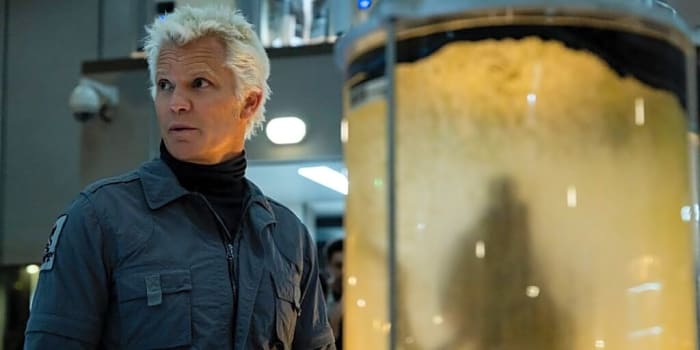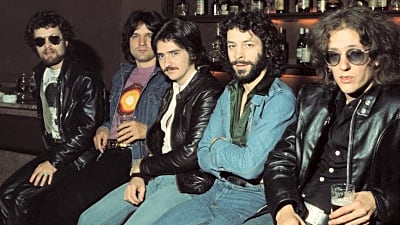
A new chapter in the famed Alien franchise has invaded our TV screens with Noah Hawley‘s FX original series, Alien: Earth. While the films are survival stories usually focused on a central location, Alien: Earth showcases the planet as a distant future cyberpunk metropolis run by five megacorporations.
Before the series premiere, Agents of Fandom‘s own Sean Mott was able to attend the Alien: Earth press conference moderated by John Solberg, which featured Hawley, executive producer David W. Zucker, Sydney Chandler, Alex Lawther, Timothy Olyphant, Babou Ceesay, and Samuel Blenkin. With the storied franchise finally touching down on Earth, series creators Hawley and Zucker share their thoughts on how and why they not only expanded the lore of Alien but also how they needed to shift the narrative from the big screen to the small screen.
Alien: Earth’ Is the Most Unique Alien Project Yet

When tackling a story that spans far longer than a two-hour film, the characters can experience a more in-depth journey while on the small screen. The Xenomorph aspect of the Alien franchise has always been a surefire success for all involved. Therefore, Hawley needed to create characters that the audience would connect with, as well as a need to introduce a more central villain lurking in the shadows who isn’t the perfect organism.
“So the challenges are, for me, let’s take the monsters out of it for a minute and think about what the show? Where’s the drama that we’re investing in week to week? I’m not worried about the monsters. When we put the monsters in, that’s the money-back guarantee, right? So we had to create this human drama in which you have a lot of human monsters as well and explore a lot of issues about the world that we’re living in, just projected into the future.”
— Noah Hawley on adapting the world for Alien: Earth
Don’t worry, there’s plenty of Xenomorph carnage in Alien: Earth, but the real antagonist of the series is corporate tyranny. There’s no government in this version of Earth, just five corporate entities that call the shots and own their territories that make up the planet. In a real-life climate that’s becoming increasingly more controlled by corporations by the day, it’s an extra chilling choice.
“Noah was able to take a lot of what was seated in those films, a lot of the thematic ideas that were in those films. But by literally bringing this story to Earth, and the way that many of those films referenced going to one day, it suddenly opened up the landscape, literally, and gave him an opportunity to really delve deeply into things one can’t accomplish in a two-hour film.”
— David W. Zucker on the plus side of bringing this story in a serialized format
The two main companies featured in Alien: Earth are Prodigy and Weyland-Yutani. The two compete in the race for immortality through technological advancements, including synthetics, cyborgs, and now hybrids. Prodigy is behind the invention of hybrids, which are synthetic bodies that contain human consciousness. The real kicker is that the human test subjects for this procedure are terminally ill children, adding more to the corporate greed that has always plagued projects involved in the Alien franchise.
Since Alien: Earth is composed of meaty one-hour episodes, it serves as the perfect backdrop to explore how corporations have taken over the world, with only one goal in mind: profit. The series explores this notion, showcasing how everything the companies own, including their employees, is a mere tool for financial gain, an expendable piece of property.
The first two episodes of FX‘s Alien: Earth are available to stream on Hulu in the U.S and Disney+ in Canada.
More must-reads:
- 20 awesome 80s movies you probably haven't seen in some time
- ‘Alien: Earth’: What Is the Difference Between a Cyborg, Synthetic & Hybrid? A Guide to All the Show’s Beings
Customize Your Newsletter
 +
+
Get the latest news and rumors, customized to your favorite sports and teams. Emailed daily. Always free!







